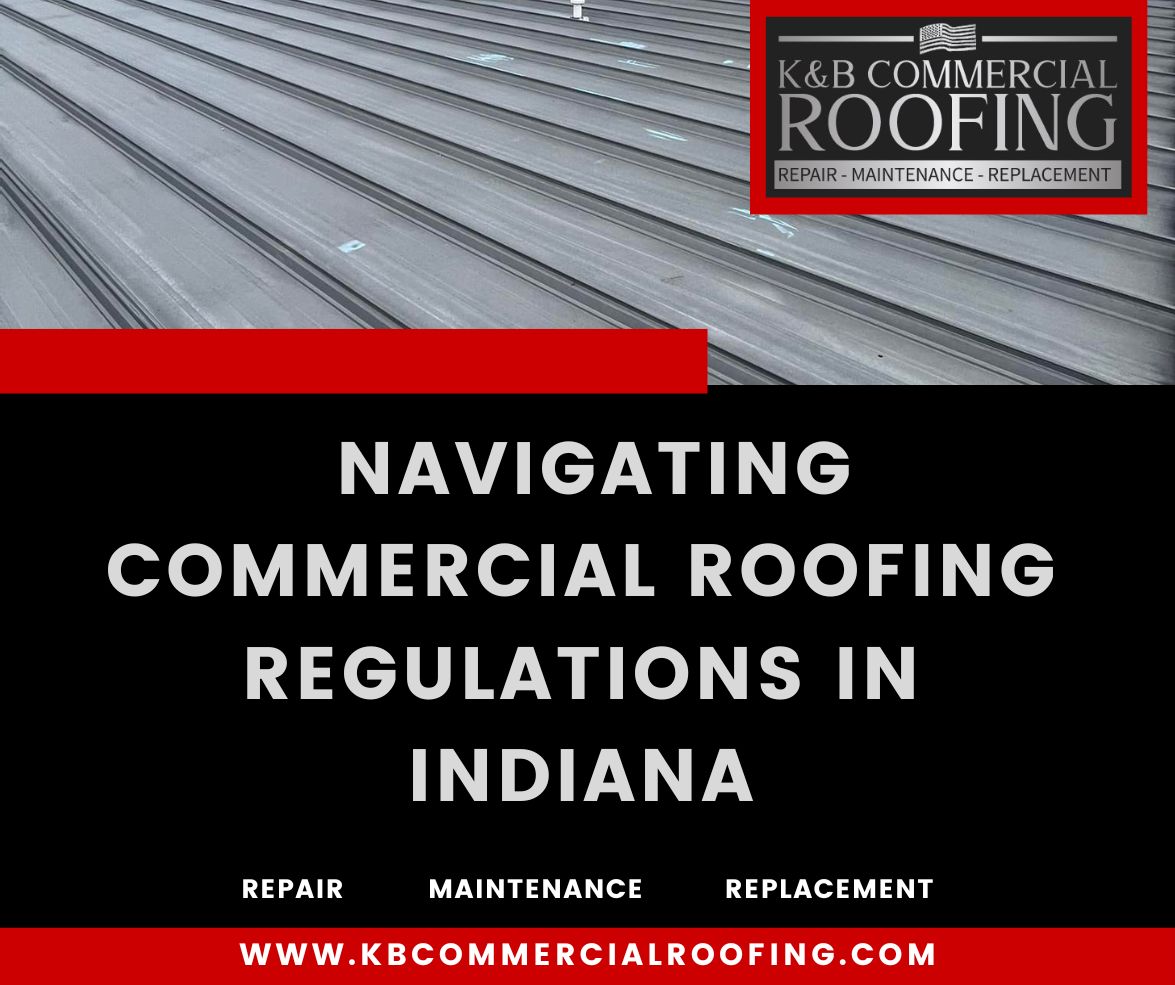Commercial roofing contractors and business owners alike face a complex regulatory landscape in Indiana when it comes to roof construction, maintenance, and repair. Understanding and adhering to these regulations is crucial for ensuring compliance, safety, and the longevity of commercial structures. This comprehensive guide will equip business owners with the knowledge to navigate Indiana’s commercial roofing regulations effectively.
Understanding the Regulatory Framework
Indiana’s commercial roofing regulations are primarily governed by the Indiana Building Code (IBC), which adopts and amends the International Building Code (IBC). The IBC establishes minimum standards for the design, construction, and performance of roofing systems on commercial buildings.
Key Regulatory Aspects for Commercial Roofing
- Permit Requirements: Before commencing any commercial roofing project, a permit must be obtained from the local building department. The permit application process typically involves submitting plans, specifications, and other documentation for review and approval.
- Material Specifications: The IBC specifies the types of materials that can be used for commercial roofing systems. These materials must meet specific performance requirements for fire resistance, wind resistance, and other factors.
- Code Compliance: Ensuring compliance with the IBC is essential for the safety and integrity of commercial structures. Qualified roofing contractors are well-versed in the IBC and can ensure that projects are executed in accordance with its provisions.
Navigating the Regulatory Process
- Engage a Qualified Roofing Contractor: Working with a qualified and experienced roofing contractor is paramount for navigating the regulatory process. Reputable contractors will have a thorough understanding of the IBC and can guide you through the permit application process, material selection, and code compliance requirements.
- Understand Local Regulations: In addition to the IBC, some municipalities may have additional local regulations that apply to commercial roofing. It is essential to consult with local building officials to ensure compliance with all applicable regulations.
- Maintain Records and Documentation: Keep detailed records of all roofing project documentation, including permits, plans, specifications, and inspection reports. This documentation can be crucial for demonstrating compliance with regulations in case of any future issues.
Benefits of Adhering to Regulations
- Safety and Structural Integrity: Compliance with commercial roofing regulations ensures that the roof system is designed and constructed to withstand the intended loads and weather conditions, safeguarding the building’s occupants and contents.
- Legal Compliance and Liability Protection: Adhering to regulations helps avoid legal issues and potential liability arising from non-compliant roof construction or improper maintenance practices.
- Maintaining Property Value: A well-maintained roof that complies with regulations contributes to the overall value and marketability of the commercial property.
The Last Word in Commercial Roofing Regulations in Indiana
Navigating commercial roofing regulations in Indiana can be a complex task, but with the right guidance and expertise, it can be effectively managed. By understanding the regulatory framework, engaging a qualified roofing contractor, and adhering to the permit requirements, material specifications, and code compliance standards, business owners can ensure the safety, longevity, and value of their commercial properties.
If you are in need of commercial roof repair or replacement, contact us to schedule a free roof inspection and estimate, call 1-317-498-3270 or email us at estimate@kbcommercialroofing.com.

